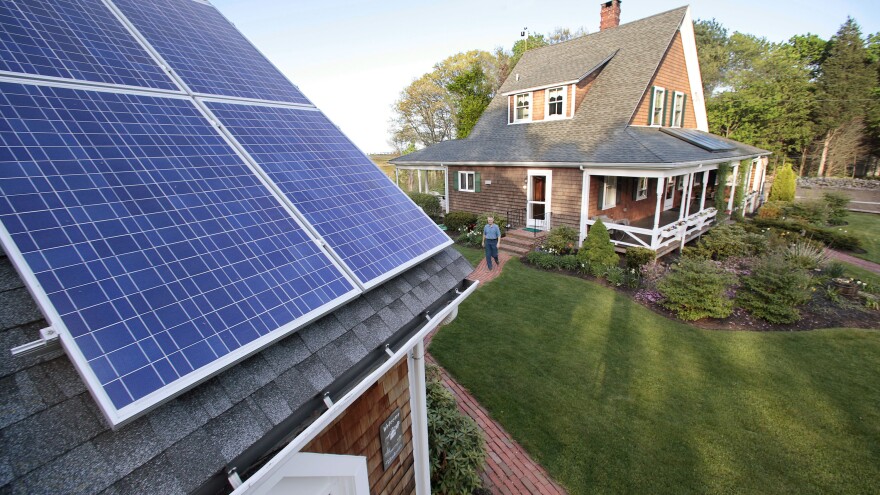New England’s energy demand dropped to its lowest point ever earlier this month thanks to good weather and the continued adoption of rooftop solar on homes and businesses.
Officials at regional grid operator ISO New England said energy demand fell to its lowest point ever – 7,580 megawatts – on Sunday, May 1.
It’s the lowest recorded demand since ISO New England began operating the six-state electrical grid in 1997.
And while Sundays typically see lower electricity demand compared to other days of the week, the May 1 record was recorded at a notable time: during the afternoon.
Traditionally, grid demand falls off at night, but the rise of “behind-the-meter” rooftop solar panels on homes and businesses has pushed the region into so-called “duck-curve” days, where energy demand is actually its lowest in the afternoon and not overnight.
In a statement, ISO New England said the region has already seen nearly as many “duck curve” days “in 2022 as in all previous years combined.”
The regional grid operator estimated more than 4,000 megawatts of behind-the-meter solar generation were pumping out power on May 1. It says that helped to temper overall demand. Good weather that day also helped, with temperatures in the 50s and 60s across New England.
“New England’s power system is changing right in front of our eyes,” said Vamsi Chadalavada, ISO New England’s chief operating officer, in a statement. “While these changes haven’t happened overnight, a day like May 1 is a good reminder of the progress New England has made in its transition to the future grid.”
The power operator says “these trends are expected to accelerate” as more rooftop solar comes online throughout New England in the coming decade.
Copyright 2022 Connecticut Public Radio. To see more, visit Connecticut Public Radio.


